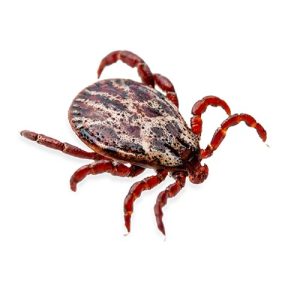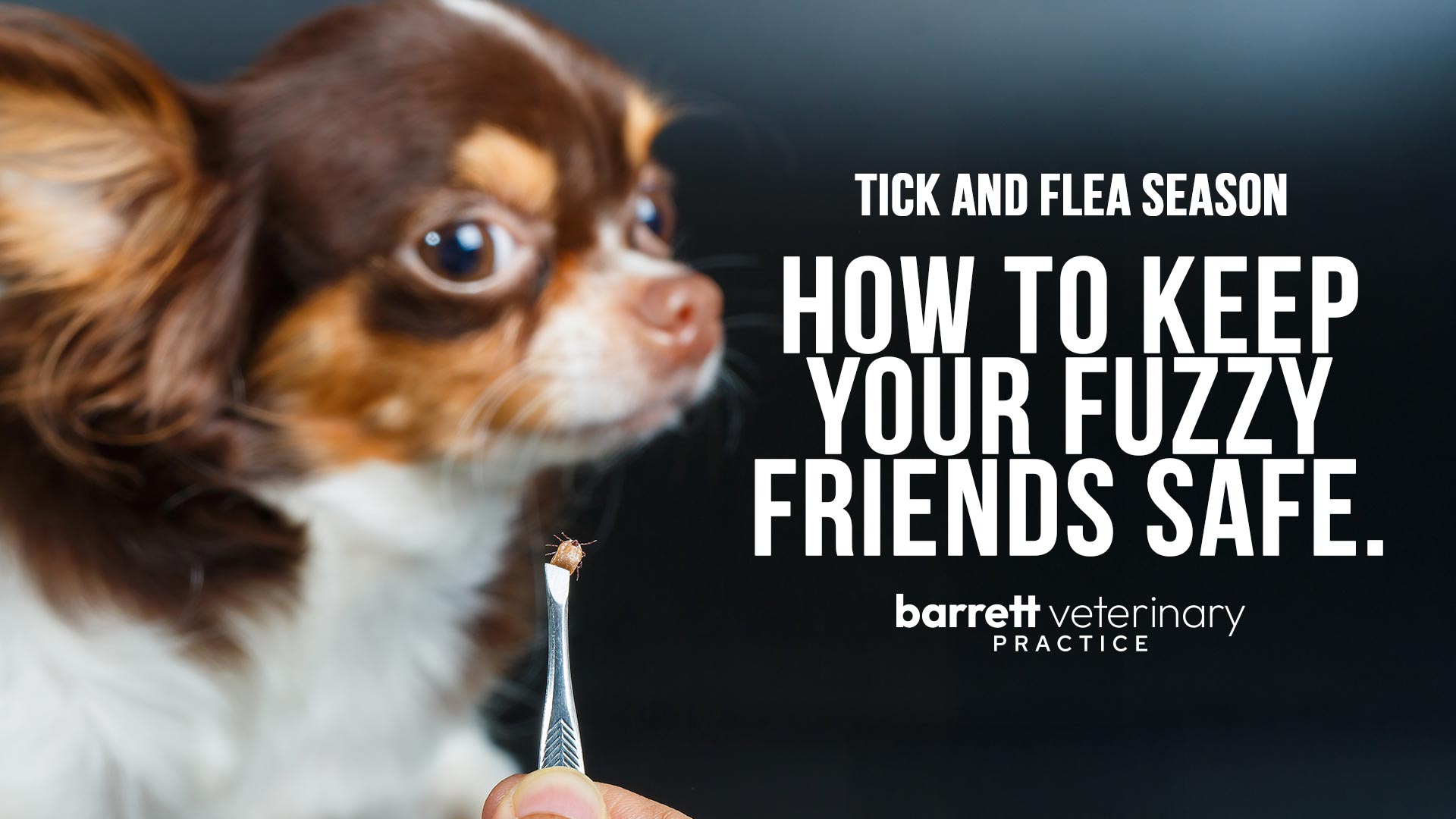Tick & Flea Season: How to Keep Your Fuzzy Friends Safe
As the weather warms up, so does tick and flea season. These tiny pests may seem like just an itchy annoyance, but they can cause real problems for your pets. From skin irritation to serious diseases, ticks and fleas are more than just a nuisance—they’re a health risk. The good news? With a little prevention and care, you can keep your pets comfortable and protected all season long.
Why Are Ticks and Fleas Such a Big Deal?
Fleas and ticks are sneaky little hitchhikers. They thrive in warm weather and love to hide in tall grass, wooded areas, and even your own backyard. Once they latch onto your pet, they can cause intense itching, allergic reactions, and, in some cases, serious illness. Fleas multiply alarmingly fast, with a single flea laying up to 50 eggs a day. That means what starts as a few fleas can quickly turn into a full-blown infestation in your home. Ticks, on the other hand, are known for spreading diseases like Lyme disease and anaplasmosis, which can affect both pets and humans.
We want your fuzzy kids to be safe and healthy, so we’re offering a 10% discount on a six month tick and flea treatment plan. Call us for more information 403-860-5763 or visit barrettvet.ca/learn-more/ to book an appointment.
How to Keep Your Pets Safe
When it comes to ticks and fleas, prevention is always easier than treatment. The best way to keep your pets protected is by using vet-approved flea and tick preventatives. There are plenty of options out there, from topical treatments and oral medications to collars that provide long-lasting protection. Not all products are created equal, though, so it’s important to choose one that’s safe and effective for your pet. If you’re unsure which option is best, we’re always happy to help you find the right fit. And just a quick reminder—never use dog flea treatments on cats, as they can be toxic!
 Checking your pets for ticks should be part of your daily routine, especially if they’ve been exploring the great outdoors. Ticks like to hide in warm, protected areas, so be sure to check behind the ears, under the collar, between the toes, and around the tail and groin. If you find a tick, don’t panic! Use fine-tipped tweezers to grasp it as close to the skin as possible and pull straight out. Avoid twisting or squeezing, as this can leave parts of the tick behind.
Checking your pets for ticks should be part of your daily routine, especially if they’ve been exploring the great outdoors. Ticks like to hide in warm, protected areas, so be sure to check behind the ears, under the collar, between the toes, and around the tail and groin. If you find a tick, don’t panic! Use fine-tipped tweezers to grasp it as close to the skin as possible and pull straight out. Avoid twisting or squeezing, as this can leave parts of the tick behind.
Keeping your yard well-maintained can also go a long way in preventing tick and flea infestations. Ticks love tall grass and shady, overgrown areas, so regular mowing and trimming will make your yard less inviting. If you have a dog, consider creating a tick-safe play area by keeping the grass short and limiting access to wooded or brushy areas. Washing your pet’s bedding regularly and vacuuming your home can help reduce the chances of fleas taking up residence inside.
What About Horses and Goats?
Ticks don’t just bother cats and dogs—our larger furry friends can be affected, too. Horses and goats are just as susceptible to tick bites, which can lead to skin irritation, infection, and even disease. If you have horses or goats, checking them regularly for ticks is just as important as it is for your smaller pets. Pay close attention to the mane, tail, ears, and underbelly, where ticks love to hide. Grooming daily and using tick-repellent sprays can help keep them protected. Keeping pastures trimmed and reducing overgrown brush will also help cut down on tick populations in their environment.
When to Call the Vet
 Most of the time, ticks and fleas are just an itchy inconvenience, but sometimes they can cause more serious issues. If your pet is scratching excessively, losing fur, or developing red, irritated skin, it’s a good idea to have them checked out. Lethargy, fever, or a loss of appetite after a tick bite can be signs of something more serious, like Lyme disease or another tick-borne illness. If you notice any of these symptoms, don’t wait—bring your pet in for a check-up.
Most of the time, ticks and fleas are just an itchy inconvenience, but sometimes they can cause more serious issues. If your pet is scratching excessively, losing fur, or developing red, irritated skin, it’s a good idea to have them checked out. Lethargy, fever, or a loss of appetite after a tick bite can be signs of something more serious, like Lyme disease or another tick-borne illness. If you notice any of these symptoms, don’t wait—bring your pet in for a check-up.
We want your fuzzy kids to be safe and healthy, so we’re offering a 10% discount on a six month tick and flea treatment plan, call us for more information 403-860-5763 or visit barrettvet.ca/learn-more/ to book an appointment. Let’s make this tick and flea season a safe one for your fuzzy family members!



